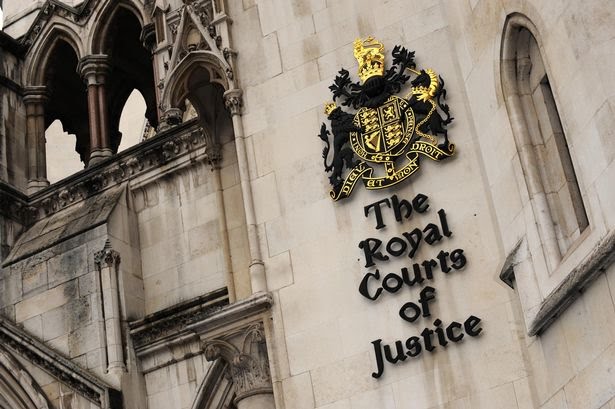A campaign organization has filed a lawsuit in an attempt to stop the UK from selling weapons to Saudi Arabia, claiming the munitions are exacerbating a severe humanitarian crisis in Yemen’s civil war.
The lawsuit brought forth by the Campaign Against Arms Trade (CAAT), which contends that arms exports have contributed to the deaths of thousands of civilians, was heard by the UK’s High Court on Tuesday.
The UK-based group is contesting the legality of the British government’s decision to keep supplying weapons to the Saudi-led coalition fighting in Yemen for the past nine years. This decision was made in 2020.
It represents the most recent development in a protracted dispute over the legitimacy of the exports, which, according to CAAT, have brought the UK more than 23 billion pounds ($28 billion) since the start of the war.
In 2019, CAAT prevailed in a comparable battle when Court of Appeal judges ruled that it was illegal to continue issuing export licenses for military equipment that could be used in the conflict in Yemen due to worries that it may have been used to commit war crimes.
Following the decision, the government temporarily stopped all sales. If there is a “clear risk” that the weapons will be used to commit war crimes, UK law prohibits their transfer.
However, exports were reinstated in the middle of 2020 on the directive of Liz Truss, the trade minister at the time.
According to the study, there have only been “rare occurrences” of players breaking international humanitarian law while using weapons that were supplied by the UK.
government review is under investigation
British arms shipments to Saudi Arabia have persisted recently despite the United States, the UK’s closest friend, putting a partial embargo on military transfers to the country due to the conflict in Yemen.
In the meantime, activists and rights organizations have contested the accuracy of the official review’s conclusions.
According to Niku Jafarnia, a Yemen and Bahrain researcher for Human Rights Watch, “the extensive evidence of laws of war crimes by the Saudi-led coalition in Yemen throughout the campaign make apparent that these violations are not just ‘single instances’ as claimed by the UK government.”
Jafarnia claimed that “UK weapons have been utilized in some of these acts with complete impunity.”
“The UK ought to follow the same principles to itself and stop selling arms to Saudi Arabia at a time when it is advocating a rules-based international order and properly criticizing Russia for significant violations of international law.”
The UK has provided weapons like Brimstone, Storm Shadow, and Paveway guided bombs.
Speaking on behalf of CAAT, Emily Apple charged that the government “cares more about profit than war crimes.”
According to Apple, “the case is being brought in support of the Yemeni people, who deserve justice.”
“We cannot stand by as UK bombs decimate communities and kill innocent people while UK arms dealers profit.”
In 2014, Houthi militants supported by Iran overran vast portions of Yemen, including the nation’s capital, Sanaa, sparking the commencement of the country’s conflict.
The conflict intensified in March 2015 when a coalition led by Saudi Arabia intervened to try and reinstate President Abd-Rabbu Mansour Hadi’s administration.
Several Western nations, including the UK and the US, have aided the coalition.
According to the Yemen Data Project, around 8,900 individuals have been killed in fighting so far, with both sides of the conflict facing accusations of war crimes.
Despite its expiration in early October, a truce agreement brokered by the UN that was reached in April of last year has largely lasted.
The accord has brought about the longest period of relative calm in Yemen since the war started, but in the interim, both sides have intensified their efforts to economically damage the other.





